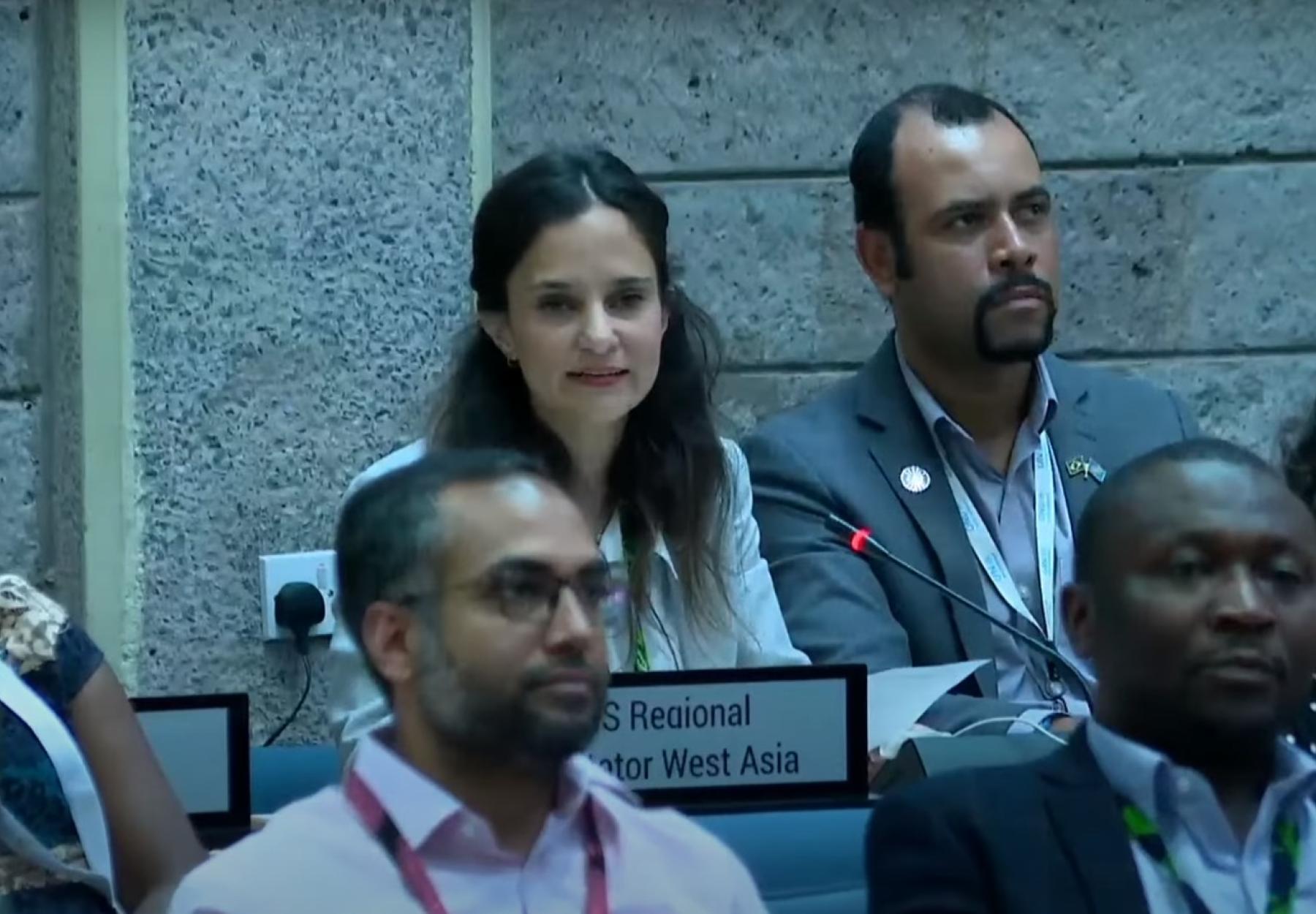
APN | Nairobi – Kenya; Amman - Zoom
26 February; 1 March 2024
The United Nations Environment Assembly (UNEA), the world's highest decision-making body on the environment, concluded its sixth conference in Nairobi, Kenya, in the presence of government delegates and representatives from international organizations and civil society organizations accredited by the United Nations Environment Programme (UNEP).
The sessions were marked by intense dialogues and discussions, in which APN and its partners played a role in pushing for the priorities of the Global South, particularly countries experiencing occupation and protracted crises. The conference predominantly focused on broad topics rather than delving into the root causes of environmental crises in our countries.
APN, represented by General Manager, Mariam Al Jaajaa, garnered the trust of the six regions within the major groups and other stakeholders of UNEP to deliver a joint statement on their behalf at the conference's opening session. This session coincided with the 143rd day of the ongoing genocide in Gaza, a matter of global concern. However, most speakers, particularly from the Arab region, avoided addressing this issue, except for the delegate from the Republic of Colombia, the representative of the Workers and Trade Unions Major Group, and Al Jaajaa herself. In the joint statement, Al Jajaa emphasized that the unwavering commitment to respecting human rights is a prerequisite for advancing the common environmental agenda. She highlighted the rights to food security and food sovereignty as fundamental human rights and stressed the urgent need to dismantle oppressive regimes, end occupations, halt the destruction of functional landscapes, cease war crimes and genocides, support the decolonization process, and protect the right to self-determination.
Al Jaajaa diverged from the established conference protocol for civil society representatives by issuing a joint call for a ceasefire in Gaza.
Al Jaajaa also played a pivotal role in coordinating a silent protest outside the conference venue, where symbolic banners expressing solidarity with Gaza were displayed, since it was not allowed to mention specific regions.
During the side events on the conference's final day, Al Jaajaa delivered a presentation on the repercussions of the conflict on women in Gaza. She underscored that while the war deeply affects women and their rights, its impact is further exacerbated and complicated by the presence of settler colonialism, as seen in Israel's practices in Palestine. This unequal power dynamic has subjected all Palestinians, including women, to 75 years of occupation, transforming them into advocates for their United Nations-approved rights, which have been consistently violated. Al Jaajaa highlighted instances such as checkpoints, the administrative detention of women, including pregnant women, and the occurrence of physical, verbal, and sexual violence within Israeli prisons.
Regarding Gaza, Al Jaajaa emphasized the absence of a division between women and men, as they collectively endure ethnic cleansing and genocide. Not only are women directly impacted by these atrocities, but they also bear the compounded burden of losing their husbands, sons, and brothers. This loss often thrusts them into the role of sole breadwinners for their families, leading to significant economic strain. Al Jaajaa advocated for the rights of women and children to be discussed in conjunction with the rights of men, highlighting the interconnectedness of their struggles.
She elaborated further, noting that women experience disproportionate effects on their nutrition and health. In times of food scarcity, they often prioritize their children and families over themselves, despite their significant need for protein, particularly during pregnancy and lactation. This deficiency not only impacts the women themselves but also affects their fetuses and newborns. Additionally, the lack of access to essential healthcare in Gaza exacerbates health issues among women, particularly concerning gynecological diseases, as medical care for pregnant and lactating women and patients is severely lacking.